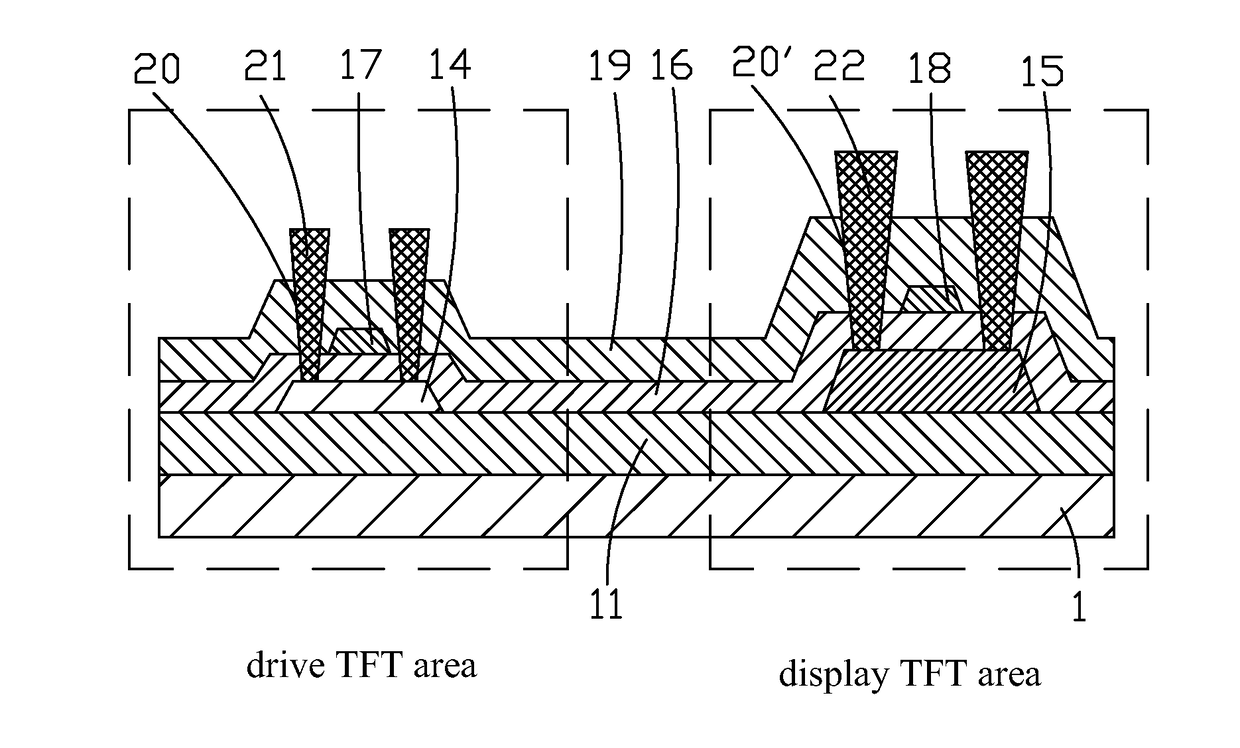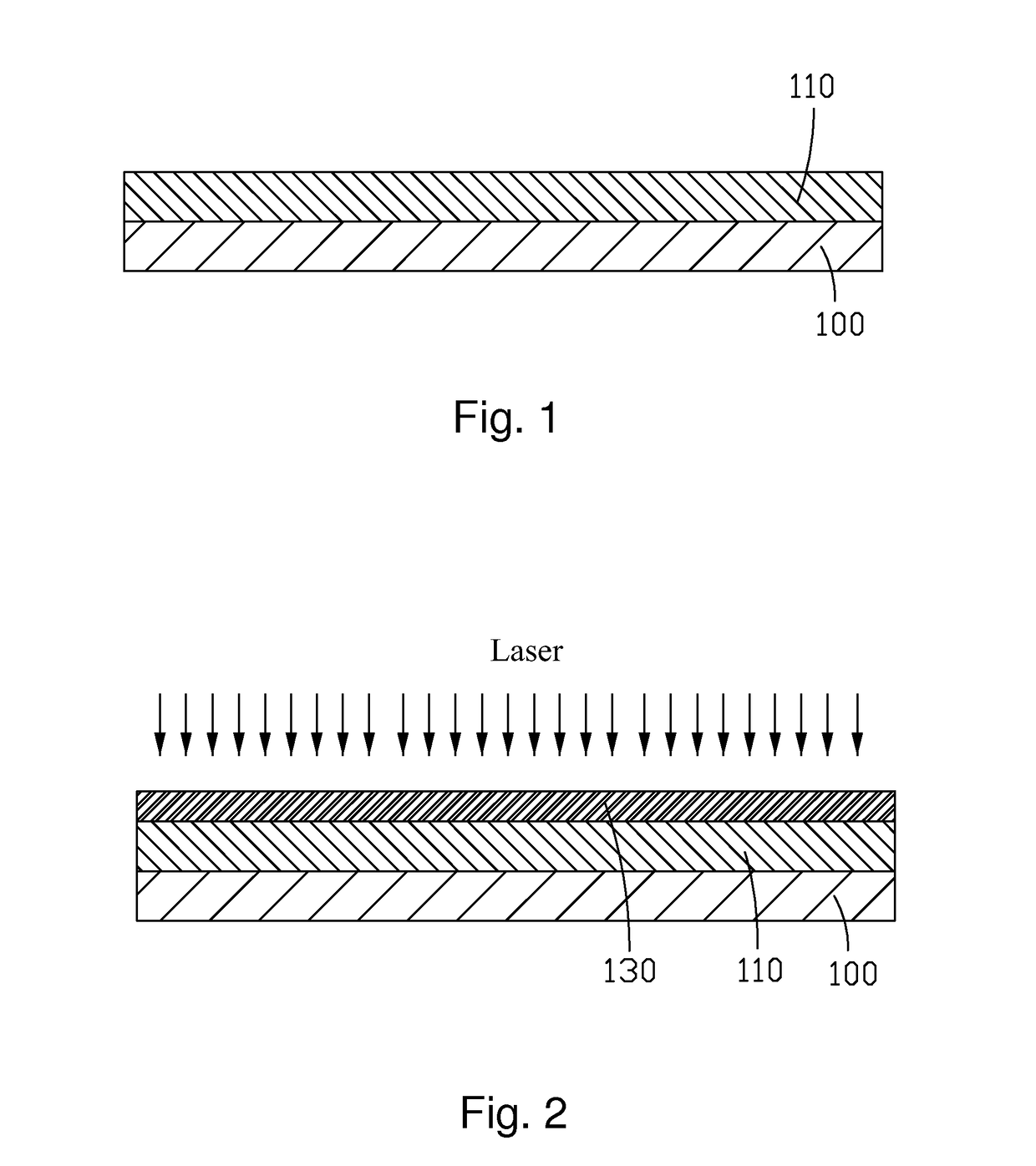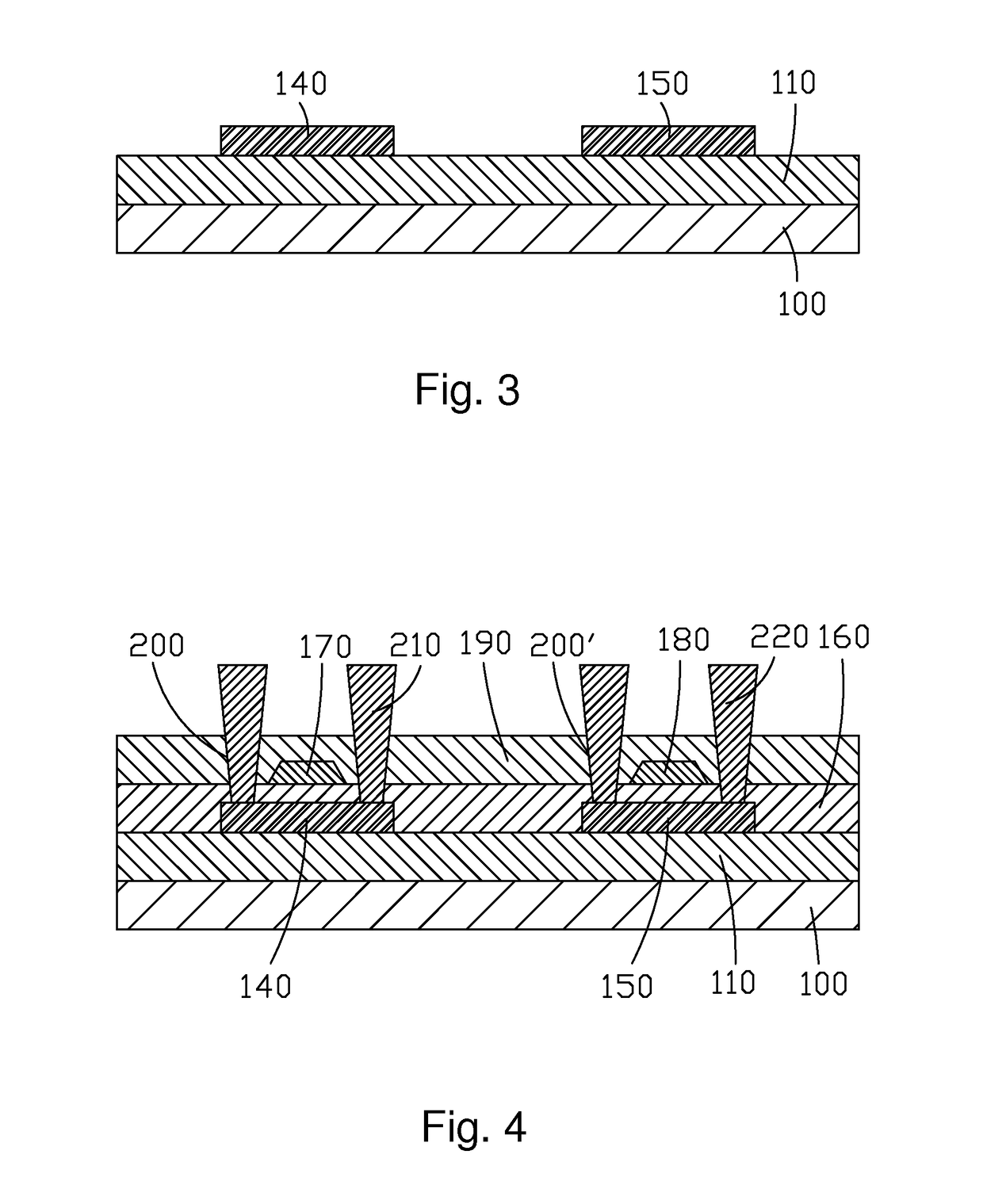Low temperature poly-silicon TFT substrate structure and manufacture method thereof
- Summary
- Abstract
- Description
- Claims
- Application Information
AI Technical Summary
Benefits of technology
Problems solved by technology
Method used
Image
Examples
Embodiment Construction
[0057]For better explaining the technical solution and the effect of the present invention, the present invention will be further described in detail with the accompanying drawings and the specific embodiments.
[0058]Please refer to FIG. 5. The present invention first provides a manufacture method of a Low Temperature Poly-silicon TFT substrate structure, comprising steps of:
[0059]step 1, as shown in FIG. 6, providing a substrate 1, and the substrate 1 comprises a drive TFT area and a display TFT area, and deposing a buffer layer 11 on the substrate 1.
[0060]specifically, the substrate 1 is a glass substrate, and material of the buffer layer 11 can be Silicon Oxide (SiOx), Silicon Nitride (SiNx) or a combination of the two.
[0061]step 2, as shown in FIG. 7, deposing an amorphous silicon layer 12 on the buffer layer 11, and patterning the polysilicon layer 12 so that a thickness of the amorphous silicon layer 12 in the display TFT area is larger than a thickness of the amorphous silicon...
PUM
 Login to View More
Login to View More Abstract
Description
Claims
Application Information
 Login to View More
Login to View More - R&D
- Intellectual Property
- Life Sciences
- Materials
- Tech Scout
- Unparalleled Data Quality
- Higher Quality Content
- 60% Fewer Hallucinations
Browse by: Latest US Patents, China's latest patents, Technical Efficacy Thesaurus, Application Domain, Technology Topic, Popular Technical Reports.
© 2025 PatSnap. All rights reserved.Legal|Privacy policy|Modern Slavery Act Transparency Statement|Sitemap|About US| Contact US: help@patsnap.com



